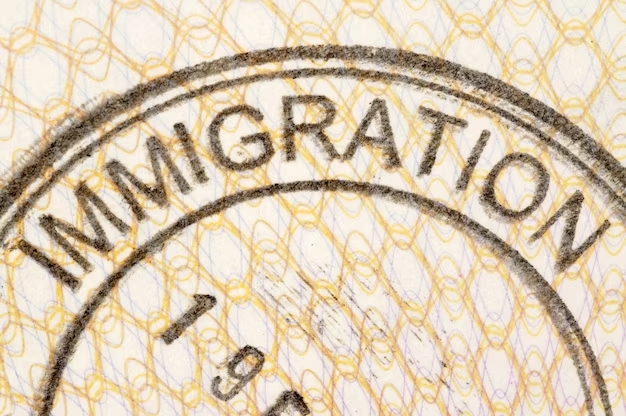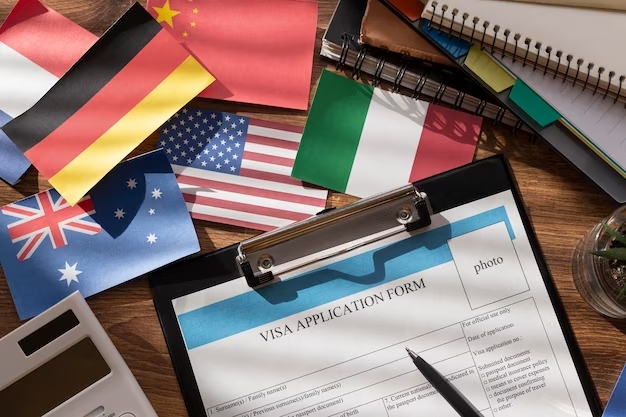Immigration Laws and Regulations in India
In an era characterized by globalization, mass migration to different countries has become increasingly common. At Yourlawyer, our team of lawyers specializes in comprehending and interpreting the intricate immigration laws and policies. It is crucial for foreign nationals to diligently comply with the laws governing their visits and meticulously complete the visa application process.
Immigration Guidelines
- The Passport (Entry in India) Act, 1920
- The Foreigners Act, 1946
- The Registration of Foreigners Act, 1939 and The Registration of Foreigners Rules, 1992
How Y/our Lawyer helps in Immigration Laws and Regulations in India ?
Our consultant will discuss the issue over a 24X7 helpline .
Step 1
Our consultant will discuss the issue over a 24X7 helpline .
Step 1
A detailed analysis of your case will be done by an experienced lawyer.
Step 2
You will be able to track your case with a personal account
Step 3
How Y/our Lawyer helps in Immigration Laws and Regulations in India ?
Our consultant will discuss the issue over a 24X7 helpline .
Step 1
Our consultant will discuss the issue over a 24X7 helpline .
Step 1
A detailed analysis of your case will be done by an experienced lawyer.
Step 2
You will be able to track your case with a personal account
Step 3
Overview
In the age of globalization, the desire for enhanced economic, political, and social stability has fueled a significant increase in global migration. India, with its diverse mix of race, religion, and culture, has become an attractive destination for immigrants from various countries. Immigration entails the movement of individuals from one country to another with the intention of establishing long-term settlement.
A key challenge faced by immigrants is the process of acquiring citizenship in their destination country, which grants them access to fundamental rights and privileges. To address these concerns, India has formulated a range of laws and policies governing immigration. These provisions are enshrined in the Constitution of India, offering guidance and regulations for individuals seeking to migrate and settle within the country.

Categories and Classifications Of Immigration

When it comes to visiting India, it is crucial for foreigners to possess a valid Indian Visa and a valid passport from their home country. Failure to comply with these requirements can result in deportation if the visa lacks valid dates or the correct number of entries.
Immigrant: Individuals who migrate from another country to India with the intention of permanently residing there are classified as immigrants. They seek to establish their long-term homes in India.
Non-Immigrant: Those who visit India for a short duration and have no plans of permanent residence fall under the non-immigrant category. They visit for various purposes such as tourism, business, or education.
Overseas Citizen of India (OCI): Foreigners of Indian origin, excluding those from Pakistan and Bangladesh, may hold an Overseas Citizen Card if certain conditions are met. This card allows individuals to retain dual citizenship, depending on the specific provisions regarding dual citizenship.
Immigrant Visas
- Employment Visa: Your Gateway to Work in India
- Categories of employment visas
- Special endorsement for working with NGOs
- Duration and extension of employment visas
- Eligibility conditions for employment visas
- Long-Term Visas: Settling in India for the Long Haul
- Understanding the purpose and duration of long-term visas
- Eligibility criteria for long-term visas
- Student Visa: Pursuing Education in India
- Overview of student visas and their requirements
- Duration and extension of student visas
- Conditions for studying in India
- Medical Visa: Seeking Medical Treatment in India
- Purpose and validity of medical visas
- Supporting documents and eligibility criteria
- Seeking medical treatment in India
- Research Visa: Exploring Academic and Research Opportunities
- Research visa categories and their specifications
- Requirements for obtaining a research visa
- Research opportunities in India
By understanding the different types of immigrant visas and their eligibility criteria, individuals can navigate the immigration process more effectively and pursue their desired goals in India.
Non-Immigrant Visa
- Business Visas: Unlocking Business Opportunities in India
- Understanding the purpose and duration of business visas
- Various activities covered under business visas
- Eligibility conditions for obtaining a business visa
- Categories of Business Visas: Meeting Diverse Business Needs
- Exploring different categories of business visas
- Specific requirements and activities allowed under each category
- Choosing the right business visa category for your visit
- Eligibility Criteria for Business Visas: Who Qualifies?
- Criteria for individuals visiting for business or industrial ventures
- Requirements for individuals involved in buying or selling industrial or consumer products
- Restrictions on lending money or engaging in petty trading
- Compliance and Regulatory Requirements for Business Visas
- Ensuring adherence to tax liabilities and other regulatory obligations
- Restrictions on full-time employment and salary payment in India
- Importance of compliance for a smooth business visa experience
By understanding the nuances of non-immigrant visas, specifically business visas, individuals can effectively plan and execute their business-related visits to India while adhering to the eligibility criteria and regulatory requirements.
Travel Guidelines for Passengers Arriving or Departing India.
When arriving or departing from India, every passenger, whether Indian or foreign, must undergo immigration checks. It is mandatory for them to possess a passport that has been duly stamped.
Regardless of nationality, any individual traveling to or from India is required to complete Disembarkation and Embarkation Cards. These cards should include the following information, to be filled out by both foreigners and Indians traveling to other countries:
- Full Name and Gender
- Date of Birth and Nationality
- Passport Details, including Passport Number and Dates of Issue
- Address in India
- Occupation
- Flight Number, Date of Arrival/Date of Boarding, and Port of Final Destination
- For arriving Indians, details of countries visited during the last six days
- Purpose of the trip abroad.
Visa Requirements for Traveling to India
Foreign visitors must obtain a visa to enter India legally, with the exception of citizens from Nepal and Bhutan. The standard visa allows a maximum stay of 180 days or 6 months in the country. However, if an individual requires a visa for an extended period exceeding 180 days, they must register with the Foreign Regional Registration Offices (FRRO).

Rules and Regulations
Passport Act 1920 (Entry in India Act): This act mandates that foreigners must obtain a valid visa to reside in India. It outlines the necessary documents and procedures for entering and residing in the country.
Foreigners Act 1946: This act regulates the entry and residence of foreigners in India from their arrival until their departure. It establishes rules and regulations regarding their stay within the country’s borders.
Registration of Foreigner Act 1939 and Registration of Foreigners Rules 1992: Under this act, foreigners visiting India for a short period but exceeding the specified duration on their visa are required to register with the designated Registration Officer.
Immigration (Carriers’ Liability) Act 2000: This act addresses the issue of passengers arriving without valid travel documents. It holds carriers liable for allowing passengers to travel without the required documentation, aiming to control the influx of individuals without proper authorization.
Note: Please consult the official government sources or legal professionals for the most up-to-date and accurate information on immigration laws and regulations.
